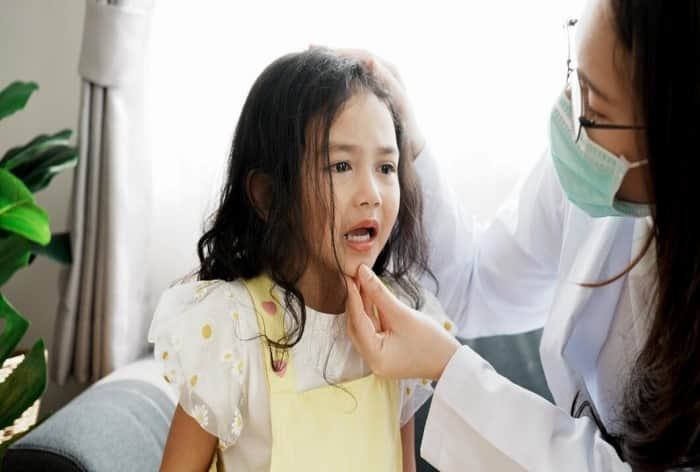Experts have reported a sudden rise in cases of mumps not only in Delhi but in several other states as well. Here is why we must take utmost care of children and take precautions to steer clear of this viral illness.

Mumps cases are witnessing a steep rise. In several states like Delhi-NCR, Andhra Pradesh, Maharashtra, Kerala, experts have reported increasing cases of the virus in the past few months. Mumps is a viral illness that mostly affects the kids. It mostly has flu-like symptoms and sometimes patients can be asymptomatic as well.
Potential symptoms of mumps: fever, sore throat, swelling in the throat, loss of appetite, headache etc. Salivary gland inflammation and testicle inflammation lead to prolonged sequelae and discomfort. Usually, the disease may last for up to a week. While Delhi-NCR has not yet become a cluster hotspot, i such a steep surge in other states may also lead to other complications like orchitis, meningoencephalitis and increased morbidity
MUMPS IN DELHI: WHY ARE CHILDREN MORE VULNERABLE?
Children are more vulnerable to mumps due to several factors, including their developing immune systems and increased exposure to the virus in close-contact environments such as schools and daycare centres. A sedentary lifestyle causes a weakened immunity system. Lack of awareness about vaccination is another cause behind it.
5 MUMPS PRECAUTIONS TO TAKE
- Vaccination: Ensure that your child receives the recommended doses of the MMR (measles, mumps, and rubella) vaccine. The vaccine is highly effective in preventing mumps and its complications. The first dose is typically administered at around 12-15 months of age, with a second dose given between 4-6 years of age.
- Maintain Good Hygiene Practices: Encourage your child to practice good hygiene habits, such as washing their hands regularly with soap and water for at least 20 seconds, especially before eating and after using the restroom. Teach them to cover their mouth and nose with a tissue or their elbow when coughing or sneezing to prevent the spread of respiratory droplets.
- Avoid Sharing Personal Items: Advise your child not to share personal items, such as drinking cups, utensils, or towels, with others. Mumps can spread through saliva or respiratory droplets, so avoiding direct contact with potentially infected fluids can reduce the risk of transmission.
- Limit Close Contact with Infected Individuals: If there is a known mumps outbreak in your community or if someone in your household has mumps, limit your child’s close contact with infected individuals. Mumps is contagious, and avoiding close contact can help reduce the risk of transmission.
- Stay Home When Sick: If your child shows symptoms of mumps, such as swollen salivary glands, fever, headache, or muscle aches, keep them home from school or daycare and seek medical attention. This will help prevent the spread of the virus to others.
It’s important to note that these precautions are general recommendations, and consulting with a healthcare professional or following guidelines from local health authorities is advisable for specific information and guidance.

